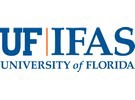Urban food production takes many shapes and forms, from backyard container gardens to vertical farms, to community gardens at schools and raised garden beds in vacant lots.
To meet the increased demand for information, Extension agents, faculty and scientists with the University of Florida Institute of Food and Agricultural Sciences (UF/IFAS) in Broward County are offering South Florida residents a “Sustainable Urban Food Production Short-Course” beginning September 20. Back by popular demand, this program, now in its third year, is designed to promote long-term urban sustainability.
“Sustainable urban food production has the potential to address important social-environmental challenges such as food security, inequality, resource consumption and environmental sustainability that our society is facing today,” said Jiangxiao Qiu, an assistant professor of landscape ecology at UF/IFAS Fort Lauderdale Research and Education Center (FLREC).
Registration
Participants meet on Mondays from 1 to 4:30 p.m. for six weeks through October 25. There is limited seating and registration is required through the following link here.
Registrants pay $25, which covers all six classes and training materials. This class includes both in-person and virtual sessions. Scheduled in-person sessions will be held in classrooms at FLREC, located at 3205 College Ave, Davie, FL. Participants will receive a certificate after completion of this short course.
Improving Florida's 'food desert'
“We continue to enrich this program with updated content and information relevant to urban food production, and also provide it in a hybrid model this year as compared to fully online last year with the COVID restrictions so that we can broaden participation and integrate field tours and hands-on activities in the area,” said Qiu.
“Developing local food production is particularly relevant for South Florida, where food security is now becoming a significant concern with 326 identified ‘food desert’ areas,” said Lorna Bravo, director at UF/IFAS Extension Broward County. “Food desert areas are places where residents have difficulty in accessing affordable, fresh, and nutritious food.”
UF/IFAS Extension Broward County and the Fort Lauderdale Research and Education Center partner to meet the community needs that are unique to Broward’s urban environment.
The supply chain disruptions caused by COVID-19 continue to be felt across industries and communities. This has spurred interest in growing food locally.
Qiu and Bravo hope participants will walk away from this year’s program with two key points: an increased awareness on the varied social-environmental benefits of urban agriculture; and increased interests, engagement and adoptions of urban agriculture and sustainable management practices.

UF/IFAS
